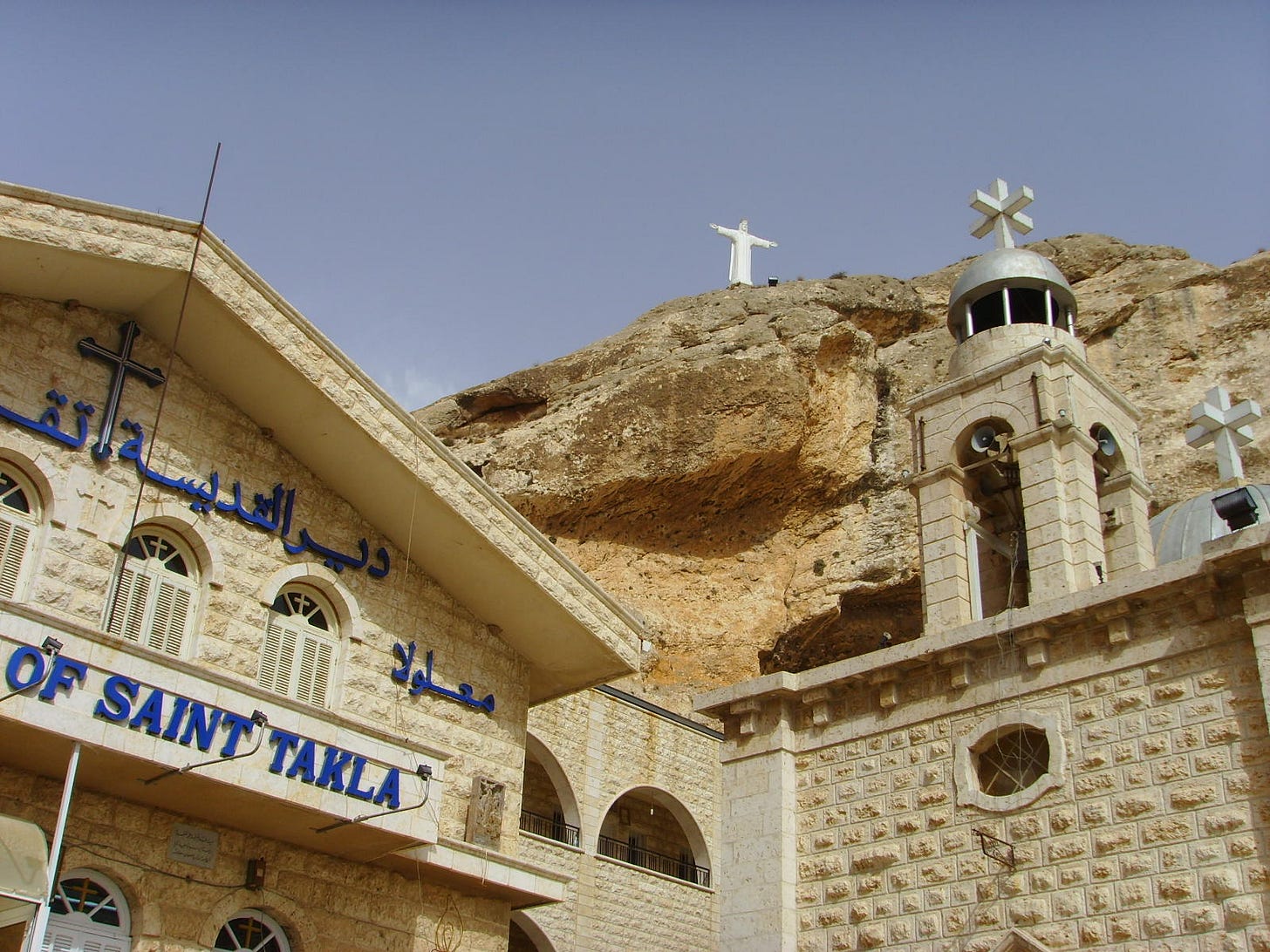Hearing the language of Christ on the road to Damascus
Notes on Christian Syria
Christmas is soon upon us, and I would like to thank everyone who has subscribed, commented, recommended, shared and spread the word. The article below is about Syria, whose people have endured huge suffering these past few years, and this being the time of giving, I would recommend a donation to Aid to the Church in Need. (On their donation page you can choose to give to a particular country or to the general fund). It goes without saying that ACN is not connected to me in any way and don’t even know about this recommendation - I just think they do great work. Have a Merry Christmas.
The small town of Maaloula nestles on a narrow stretch of hillside some 40 miles north of Damascus and is only accessible via a single road, through a gate from which the town gets its name. Near its peak, a daunting 5,000ft above sea level, stands a prominent statue of the Virgin Mary from where a panoramic view of the surrounding area can be viewed.
Indeed, you can see people coming from miles away, which might explain why this is one of the last places where Aramaic, once the lingua franca of the Near East and the mother tongue of Jesus, was still being spoken when I visited in 2009. A survivor from another world that seems incongruous, I remember Lonely Planet describing it as like finding a Latin-speaking village in the Umbrian Hills. (Although there is still a variation of Greek, Griko, spoken in parts of southern Italy).
The town is home to the Convent of St Thecla, named after a saint who found refuge there, as well as the fourth-century Orthodox church and monastery of St Sergius and St Bacchus, where we heard Mass and the Lord’s Prayer spoken in Jesus Christ’s own tongue. It was magnificently ancient in my memory, and being built on the site a pagan shrine some parts of the building are apparently more than 2,000 years old.
It was a special moment, but it’s funny how our memories are so sensory-based because my most vivid recollection of Maaloula were the profiteroles being served at the restaurant - they were delicious. Maybe I’m just exceptionally greedy and obsessed with food, with no deep appreciation of culture.
Outside the church there were Iranian women in chadors mingling with locals, since the town has also long been a place of pilgrimage for Shia Muslims - a confusing revelation to outsiders. It was all quite special - a timeless scene that had survived through centuries of turmoil. But maybe not anymore.




